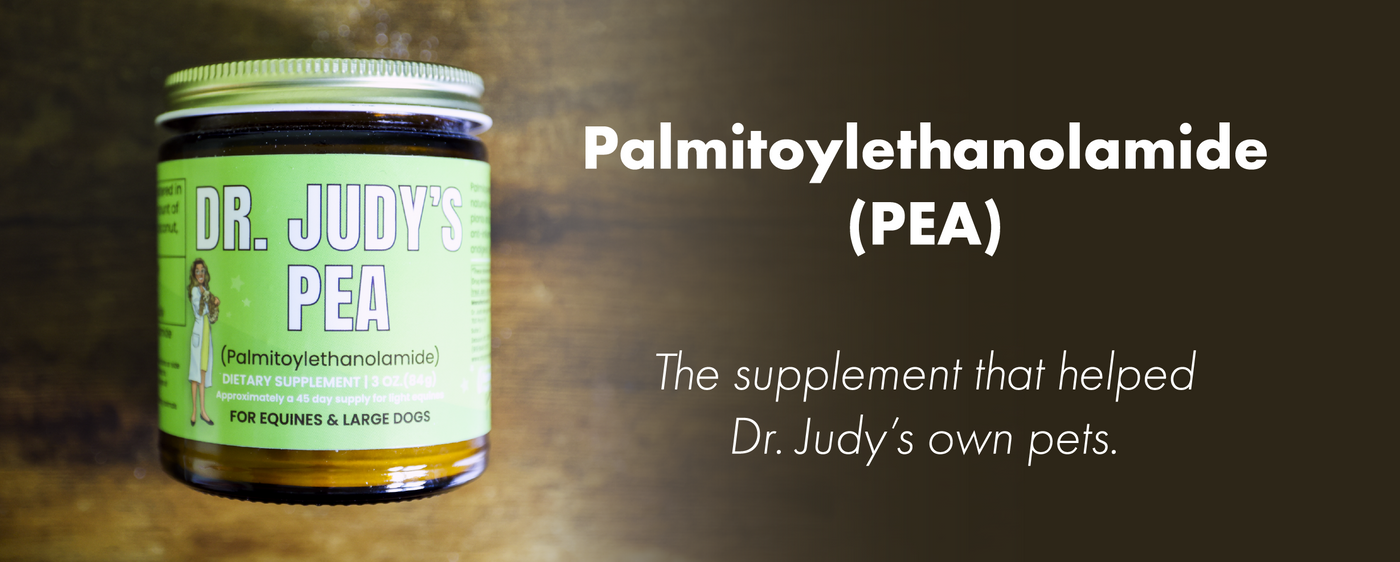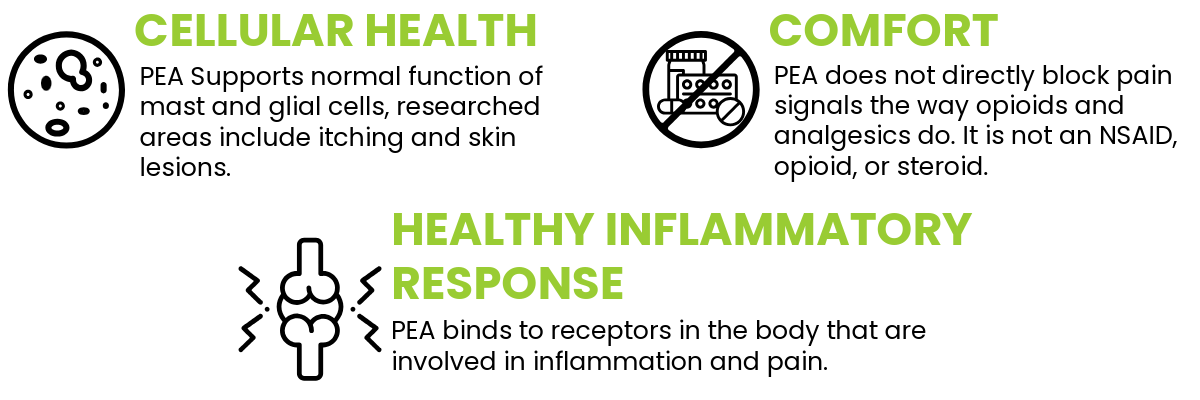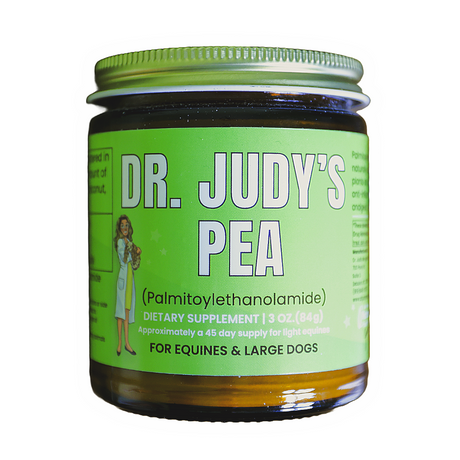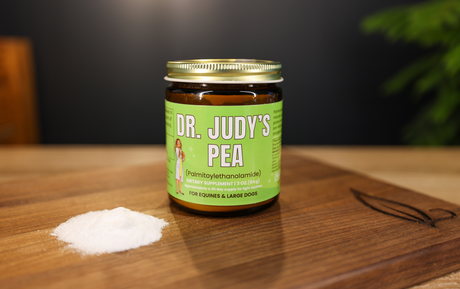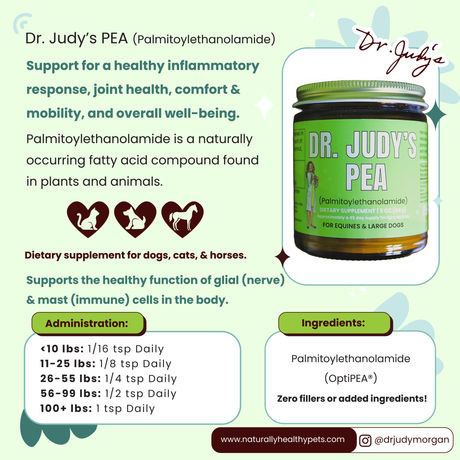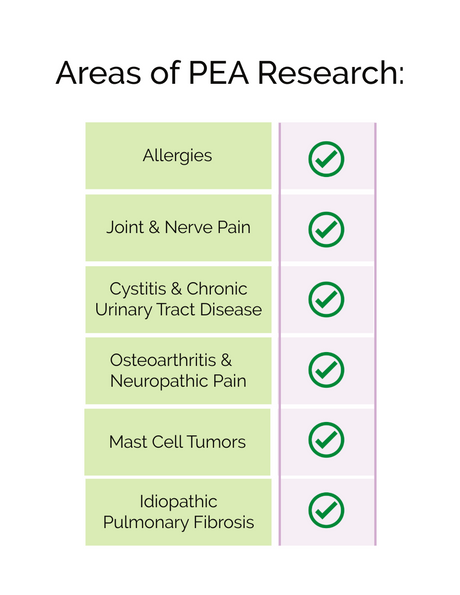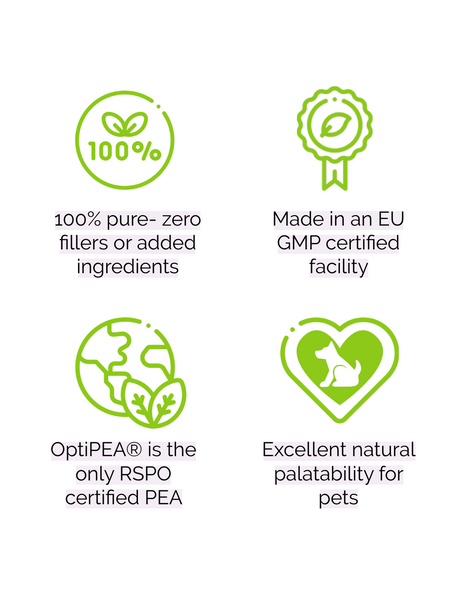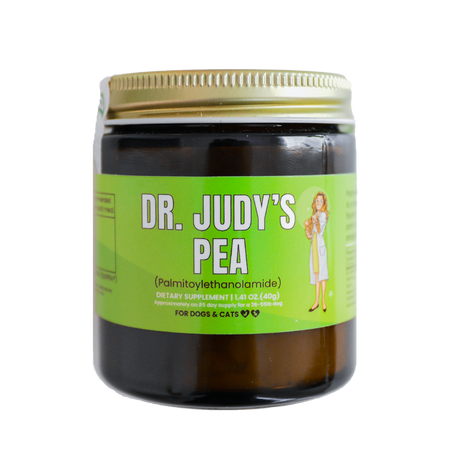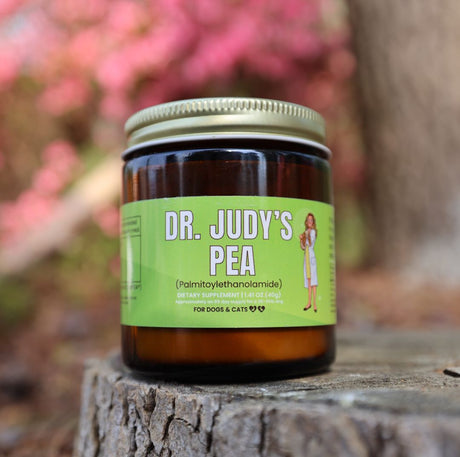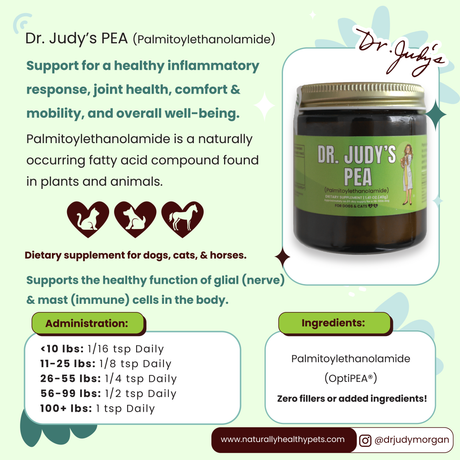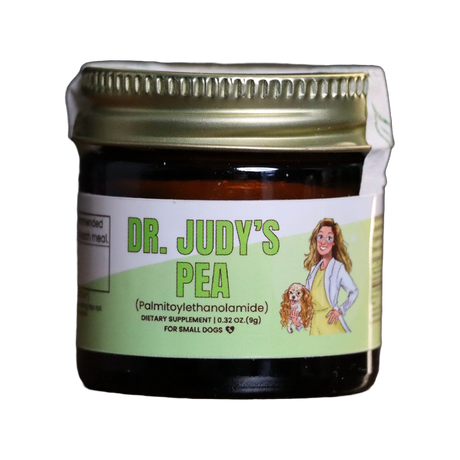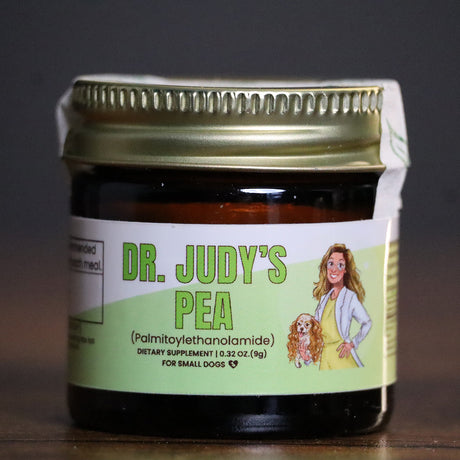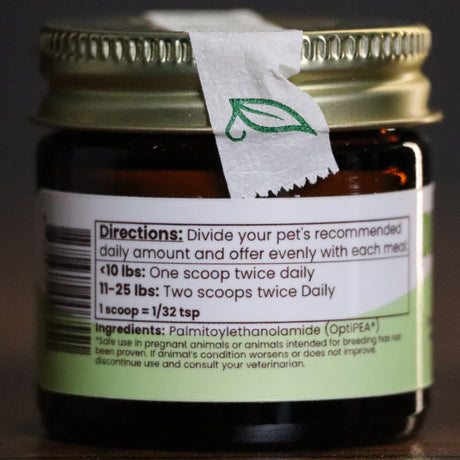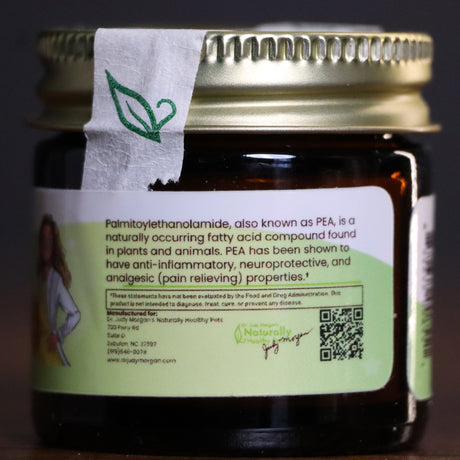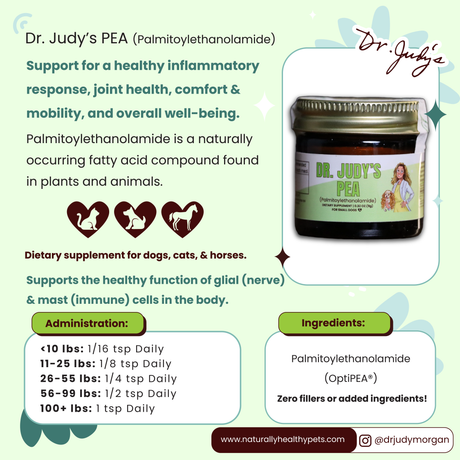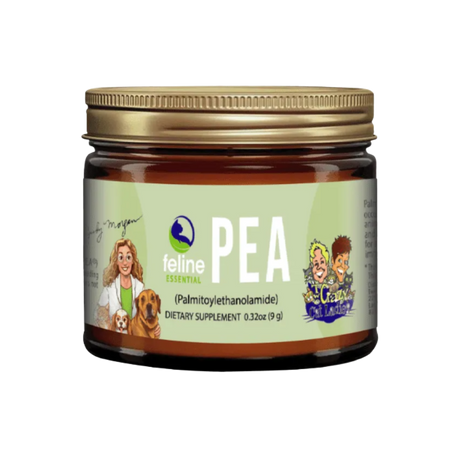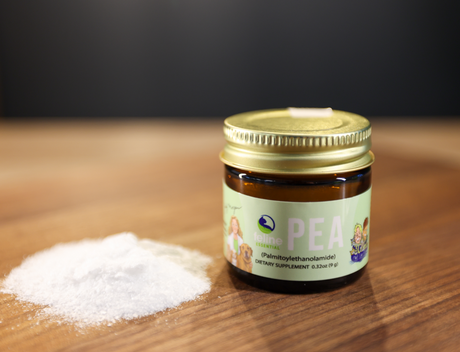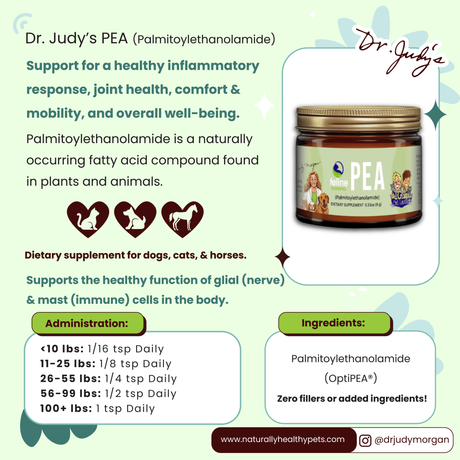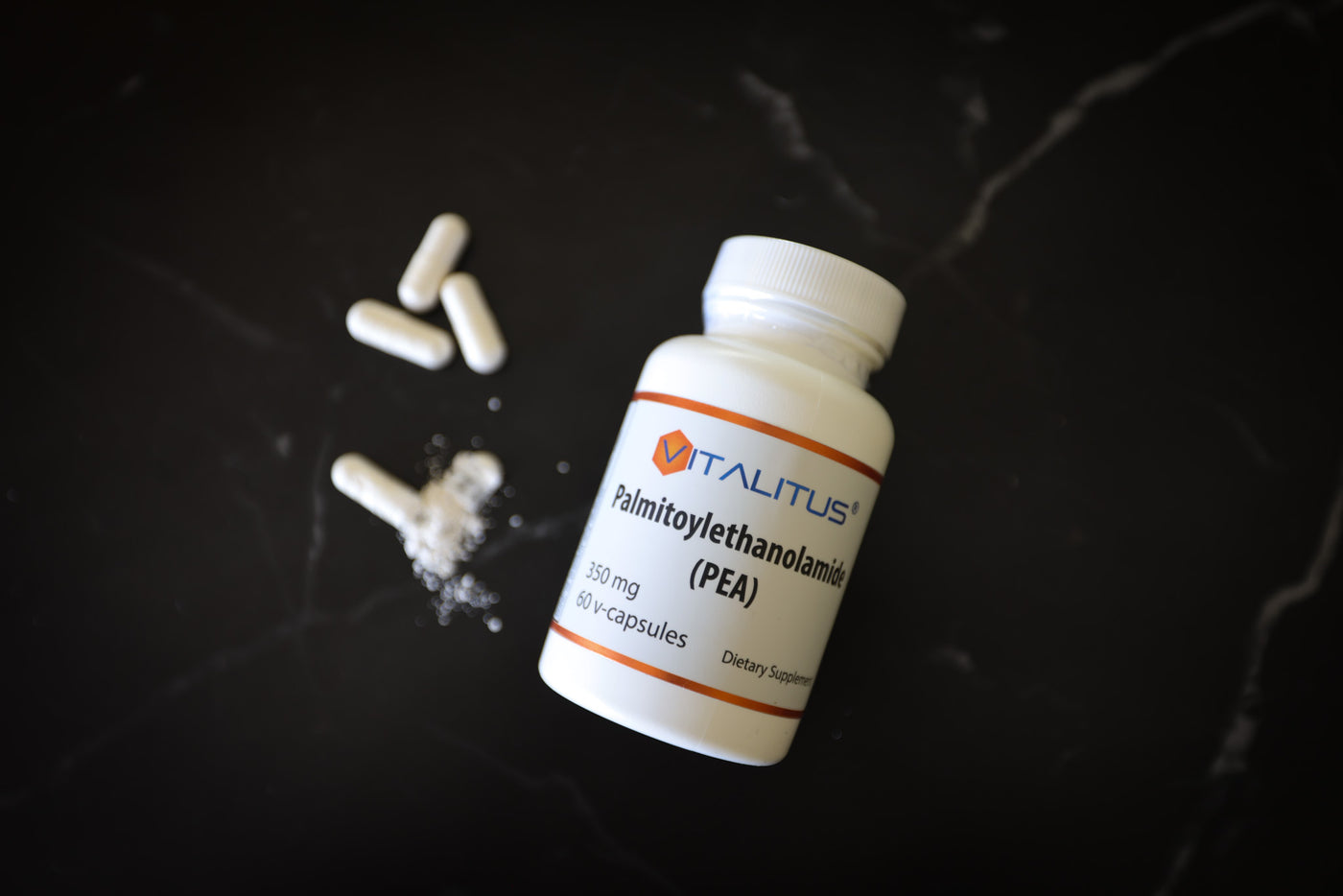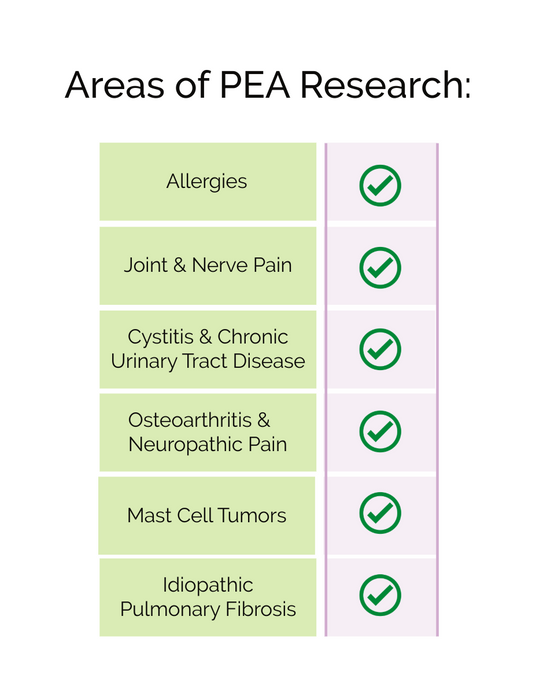
What is PEA?
Palmitoylethanolamide, also known as PEA, is a naturally occurring fatty acid compound found in plants and animals. PEA may help support healthy inflammatory and immune balance, comfort, and well-being.
Palmitoylethanolamide has been researched for many years. Areas of PEA research include:
- Chronic pain of various sources.
- Cystitis and chronic urinary tract disease.
- Allergies (itching and skin lesions).
- Mast cell tumors.
- Idiopathic pulmonary fibrosis.
*PEA does not directly block pain signals the way opioids and analgesics do. It is not an NSAID, opioid, or steroid.
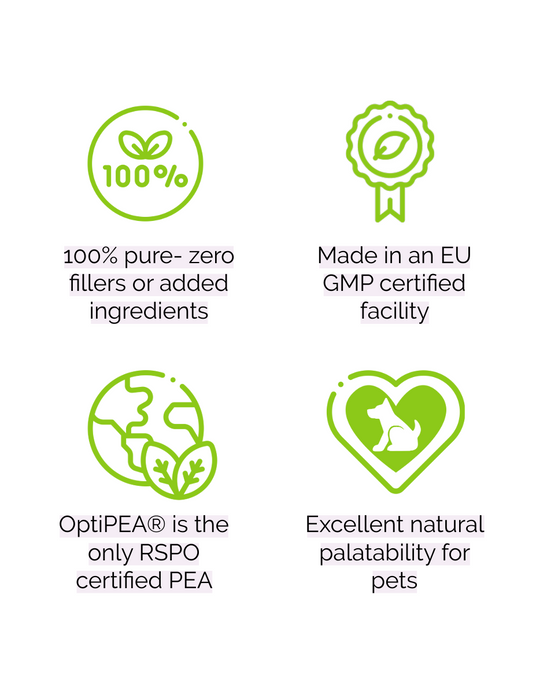
What makes Dr. Judy's PEA different?
Dr. Judy had no intentions of making a PEA product, but when there was a massive shortage in supply and pets were in need (including her own dogs) Naturally Healthy Pets decided to step in.
The team researched other options on the market, but none of them met Dr. Judy's standards. She wanted pure, human-grade Palmitoylethanolamide without fillers or inactive ingredients. Meanwhile, the NHP team was getting emails daily about pets needing support, asking when PEA would be back in stock, adding to the stress of the shortage.
Eventually, we found a company in The Netherlands that was able to meet our needs and help us bring high quality PEA (OptiPEA®) to the pet community.
Featured collection
View allPEA Testimonials
Frequently Asked Questions
How much PEA can I give my pet?
How much PEA can I give my pet?
Directions: divide your pet's recommended daily amount and offer evenly with each meal. PEA is lipophilic and is better absorbed with fat. If your pet is eating a very low fat diet, then we recommend administering PEA with foods containing a small amount of oils or healthy fats. MCT oil is usually well tolerated by pets that are sensitive to fats.
For small dogs and cats:
<10 lbs: One scoop twice daily.
11-25 lbs: Two scoops twice daily.
1 scoop =1/32 tsp
For medium to large dogs:
26-55 lbs: 1/4 tsp Daily
56-99 lbs: 1/2 tsp Daily
100+ lbs: 1 tsp Daily
For Equines:
Light Equines: 1 tsp daily
Heavy Equines: 1 - 2 tsp daily
Research has shown PEA to have a strong safety profile. The daily dose can be doubled if needed. Discontinue use if any GI upset is seen or you suspect your pet is not tolerating it well.
Is there a difference between the different jars of Dr. Judy’s PEA?
Is there a difference between the different jars of Dr. Judy’s PEA?
The only difference is the size of the jar. The contents are exactly the same. If you have large dogs or multiple pets, the bulk size jar is a better value.
Is Dr. Judy’s PEA ultramicronized?
Is Dr. Judy’s PEA ultramicronized?
No, it is not micronized. The general independent scientific consensus is still that, because of a lack of a direct 1-to-1 comparison between micronized and non-micronized PEA, there is no reason to assume one form is better than the other. Furthermore, a number of clinical trials were done on non-micronized PEA. We use OptiPEA® which is a premium brand for human grade palmitoylethanolamide worldwide. When it comes to manufacturing palmitoylethanolamide they have adopted and work in accordance with EU GMP standards. They only use high quality raw materials, novel process engineering and highly-sensitive full spectrum chemical analysis for research and quality assurance of our products. The same stringent requirements as used in pharmaceutical manufacturing are implemented in the manufacturing process for OptiPEA®. OptiPEA® is produced in Europe in a state-of-the-art production facility by a team of PhD chemists. It is located in The Netherlands and has received EU GMP certification. OptiPEA® was specifically chosen because of its safety, reliability and quality.
Does Dr. Judy's PEA contain any inactive ingredients?
Does Dr. Judy's PEA contain any inactive ingredients?
No. It is 100% Palmitoylethanolamide (OptiPEA®). There are no inactive ingredients. We have found this brand of PEA to be virtually tasteless and palatable for even picky eaters.
How long will it take to see results?
How long will it take to see results?
It depends on the individual. Some in as little as a few days, others take weeks. PEA has a cumulative effect and needs time to build in the system. We recommend giving at least 4-6 weeks before assuming it isn’t working for your pet, unless any adverse reaction is suspected, then discontinue use immediately. The daily amount can also be safely doubled.
Can I use PEA with X medication or X supplement?
Can I use PEA with X medication or X supplement?
PEA has no known drug or supplement interactions, but consult your veterinarian. We always recommend starting any new product at a lower amount and slowly working up to the recommended amount. Discontinue use if any GI upset is seen or you suspect your pet is not tolerating it well.
What is your PEA made from?
What is your PEA made from?
RSPO certified palmitic acid from palm oil and ethanolamine. The Roundtable on Sustainable Palm Oil (RSPO) certification ensures that the palmitic acid used in OptiPEA® is sourced from sustainably managed palm plantations, protecting biodiversity, reducing deforestation, and supporting the rights of local communities.
Where is your PEA made?
Where is your PEA made?
It is made in the Netherlands in an EU GMP certified facility under the brand OptiPEA® by Innexus Nutraceuticals B.V.
Are there any side effects?
Are there any side effects?
Palmitoylethanolamide has no known drug interactions or side effects, however, discontinue use if any adverse effect is suspected. We have received a few reports of soft stools leading to gastrointestinal upset. Discontinue use if your pet is showing signs of gastrointestinal upset or any adverse reaction.
Does PEA work like pain medications?
Does PEA work like pain medications?
No. PEA does not directly block pain signals the way opioids and analgesics do. It is not an NSAID, opioid, or steroid. PEA binds to receptors and supports the normal function of mast and glial cells to help restore homeostasis.
Can I use PEA long term or need to take breaks?
Can I use PEA long term or need to take breaks?
PEA can be used long term. Discontinue use if your pet displays any signs of intolerance to the supplement. PEA takes several weeks to become most effective in the body and can be used as long as it appears to be effective.

